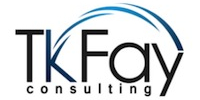Results Based Resume
When it’s time to start looking for a job, everyone knows the first thing that must be done is to prepare a resume. To most people this is a daunting task. Once you start researching for the BEST kind of resume, the project goes from overwhelming to just plain confusing. You hear and read about all kinds of preferences such as chronological, functional, technical, and combination resumes (just to name a few). Then there are all the do’s and don’ts of choosing the best format.
No matter what format you decide to use, remember you want your resume to highlight all the EXPERIENCES and ACCOMPLISHMENTS you offer. Choose a format that makes you stand out amongst other applicants applying for the same job.
Many resumes that I have reviewed over the years look no different than a restated job description. They list experiences and accomplishments as tasks versus value. That’s an opportunity lost!
So, while you are reading and researching resume formats that is best for you …
Make sure you keep your resume RESULTS-based.
RRelevant to the employer’s needs—that’s your goal. Know the position you are applying for and write a few phrases explaining how your skills will meet the needs.
EExperiences are best positioned as accomplishments. Describe what your work did and the impact it had on the position/company. Show, don’t tell.
SSpecific Examples should be applicable to what you want to do in your next job. These are referred to as “transferable job skills.” By explaining how you used communication skills, leadership skills, teamwork, and technical abilities, you will add value to your resume.
UUse Power Words (action words) to describe what you did. Some examples of power words are: managed, organized, developed, and created. Align this vocabulary with keywords from the prospective employer’s website and job description, and they will make your resume dynamic.
LLook and List. LOOK for spelling, grammar, and consistency. Does it make sense? LIST accomplishments using bullets at the beginning. The easier it is for a prospective employer to read your resume, the better your chance at an opportunity to interview for the job.
TTop One-Third of the resume is the most important. It should include your name, contact information, a summary of qualifications or a personal branding statement, areas of expertise, achievements, and education if you are a recent college graduate.
SSupports prospective employers’ number one question: “What can you do for me?” Interviewers may not ask that exact question, but it’s certainly what they are thinking when they read your resume. Your resume is the first step in determining if they should bring you in for the job interview. Everything included on the page should answer this question, whether it is in your summary of qualifications or through your accomplishments and experiences.
As you prepare your RESULTS-based resume, make sure you review the job description, posting, and company website. Use every tool at your disposal and do everything you can to address the employer’s question: “What can you do for me?”


